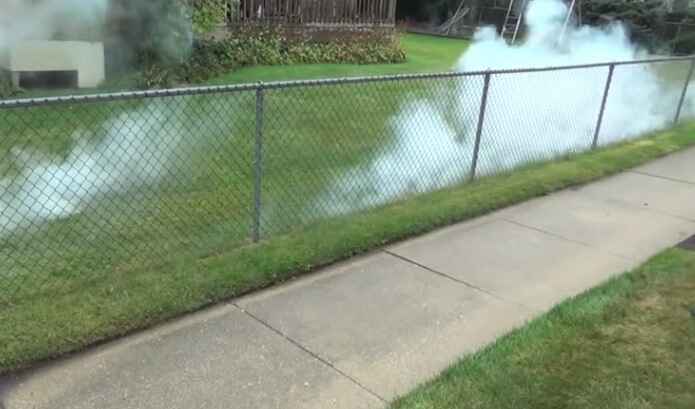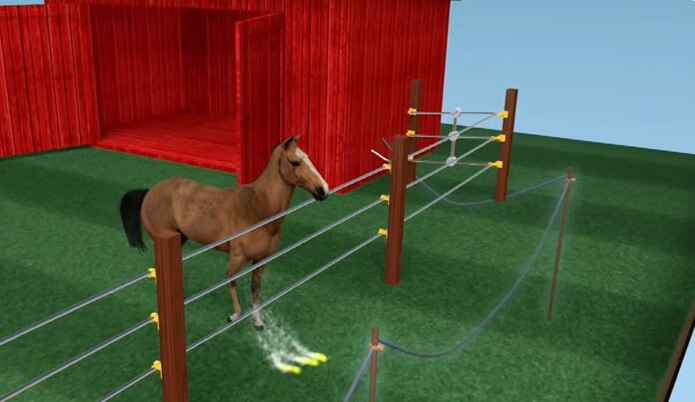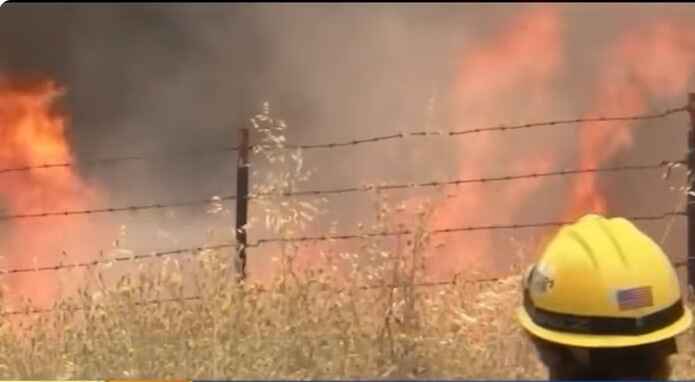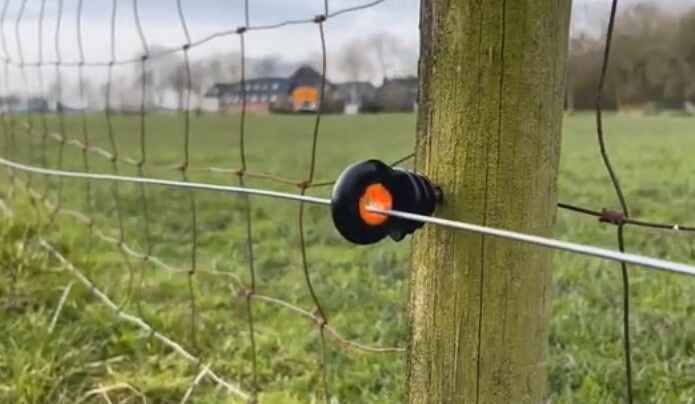No, electric fences are designed to deliver a non-lethal shock and typically use low-voltage pulses. The risk of an electric fence starting a fire is minimal, as they are not intended to produce sparks or generate significant heat.
Ever wondered about the electrifying question: Can an electric fence start a fire? As practical users, safety is our top priority. Join me on a journey through the ins and outs of electric fences, exploring the potential fire risks and, more importantly, how to mitigate them. Whether you're a seasoned DIY-er or just starting out, let's unravel the mysteries and ensure our projects are both electrifying and fire-safe. Ready to spark some knowledge? Let's dive in!

An electric fence can start a fire under certain conditions. In particular, the high voltage current created by electric fences has the potential to cause sparks that may ignite nearby combustible materials such as dry vegetation or wood chips.
The best way to avoid this risk is to install an insulated wire at least 12 inches away from combustible material. Additionally, ensuring that all electrified components are well-grounded can help reduce this risk even further.
Finally, monitoring your fence for signs of wear and tear over time is important, as faulty or damaged insulation can lead to arcing and sparking - both of which increase the chance of a fire.
What should you do if your electric fence starts a fire?

If your electric fence starts a fire, the most important thing to do is ensure everyone in the vicinity is safe and unharmed.
- Once it has been confirmed that all people nearby are out of harm's way, take quick action:
- Remove the power source or turn off the main breaker.
- Call 911 if necessary.
- Notify your local fire department immediately.
- You should then assess what caused the fire and use safety precautions to prevent further incidents. If possible, safely extinguish any remaining flames before leaving the area.
- In addition to these steps, be sure to check for any resulting property damage from the fire and contact an insurance company if you believe there was a loss of personal property due to this incident.
How close to a structure can you place an electric fence?

The minimum distance that an electric fence must be kept from a structure depends on the specific electrical codes and regulations in your area. However, as a general guideline, the minimum recommended distance between an electric fence and a structure is at least 3 to 5 feet. It is essential to check with your local electrical codes and regulations for specific requirements to ensure safety and compliance.
Why can electric fences start fires?

Electric fences are a common feature of many farms and homes. Unfortunately, these very same fences can sometimes start fires. Here are seven potential causes of electric fence fires:
1. Weak Currents
Weak currents in the fence can cause arcing or sparking between the wires. This can create intense heat sufficient to ignite dry grass, kindling, or other surrounding combustible materials.
2. Poor Connections
Faulty connections in the fence can also lead to arcing that may cause a fire. This can occur due to corrosion, incorrect installation, or inadequate maintenance of the electric fence components.
3. Damaged Fencing
Damaged fencing can lead to sparks that can ignite combustible materials. This damage can be caused by poor weather conditions, faulty installation, or animals interfering with the fence.
4. Overloaded Fence
If too much power is sent through a fence, it can overload and cause arcing or sparking, potentially starting a fire. To prevent this, use voltage and current meters to monitor the fence and check for any overloads.
5. Lightning
Lightning can cause a direct strike or indirect electricity arcing along the fence line. This is especially common during thunderstorms and can easily spark a fire in dry grass, kindling, and other combustible materials.
6. Electrical Power Surges
Power surges on the electric fence may occur due to faults in power lines or lightning strikes that can cause arcing and potential fires. This is why it's important to use surge protectors or lightning arrestors to protect against these potential dangers.
7. Voltage Spikes
Voltage spikes can occur due to faulty connections, bad weather conditions, animals interfering with the fence, and other factors. These voltage spikes can cause sparks that may ignite combustible materials and start a fire. It's essential to monitor the fence and check for any voltage spikes.
By understanding these potential causes of electric fence fires, it's possible to take steps to prevent them.
How can you prevent an electric fence from starting a fire?

Electric fences are an effective way of deterring animals but can pose a fire hazard if not installed and maintained properly. Here are seven preventive measures to protect your property from fire caused by an electric fence:
1. Use proper insulation:
Ensure all wiring is insulated correctly, so it doesn't come into contact with combustible materials.
2. Check connections:
All connections should be solid and secure to avoid short-circuiting and sparking.
3. Maintain the fence regularly:
Inspect the electric fence regularly, looking for frayed or broken wires, faulty insulation, or signs of corrosion.
4. Install a fire suppression system:
Installing an automatic fire suppression system near your electric fence can help reduce potential fire risks by extinguishing any fires quickly before they become out of control.
5. Select appropriate materials:
Ensure you use non-combustible materials when installing an electric fence to prevent it from becoming a fire hazard.
6. Keep vegetation away from the fence:
Make sure the fence is clear of any vegetation, as this can increase the risk of fire.
7. Use a suitable power source:
Electric fences require a dedicated power source with the proper voltage and current ratings to prevent overload and cause an electrical fire.
By taking these preventive measures, you can help ensure the safety of your property and that your electric fence works as intended.
Final Words
Though it may seem far-fetched, an electric fence can cause a fire. If the conditions are just right, the static charge from the fence can ignite a fire that quickly consumes dried grasses, leaves, and other flammable materials. Homeowners with electric fences should clear away any potential fuel sources from around the perimeter of their property and have a plan in place in case of fire. You can keep your home safe from electrical fires with simple precautions.